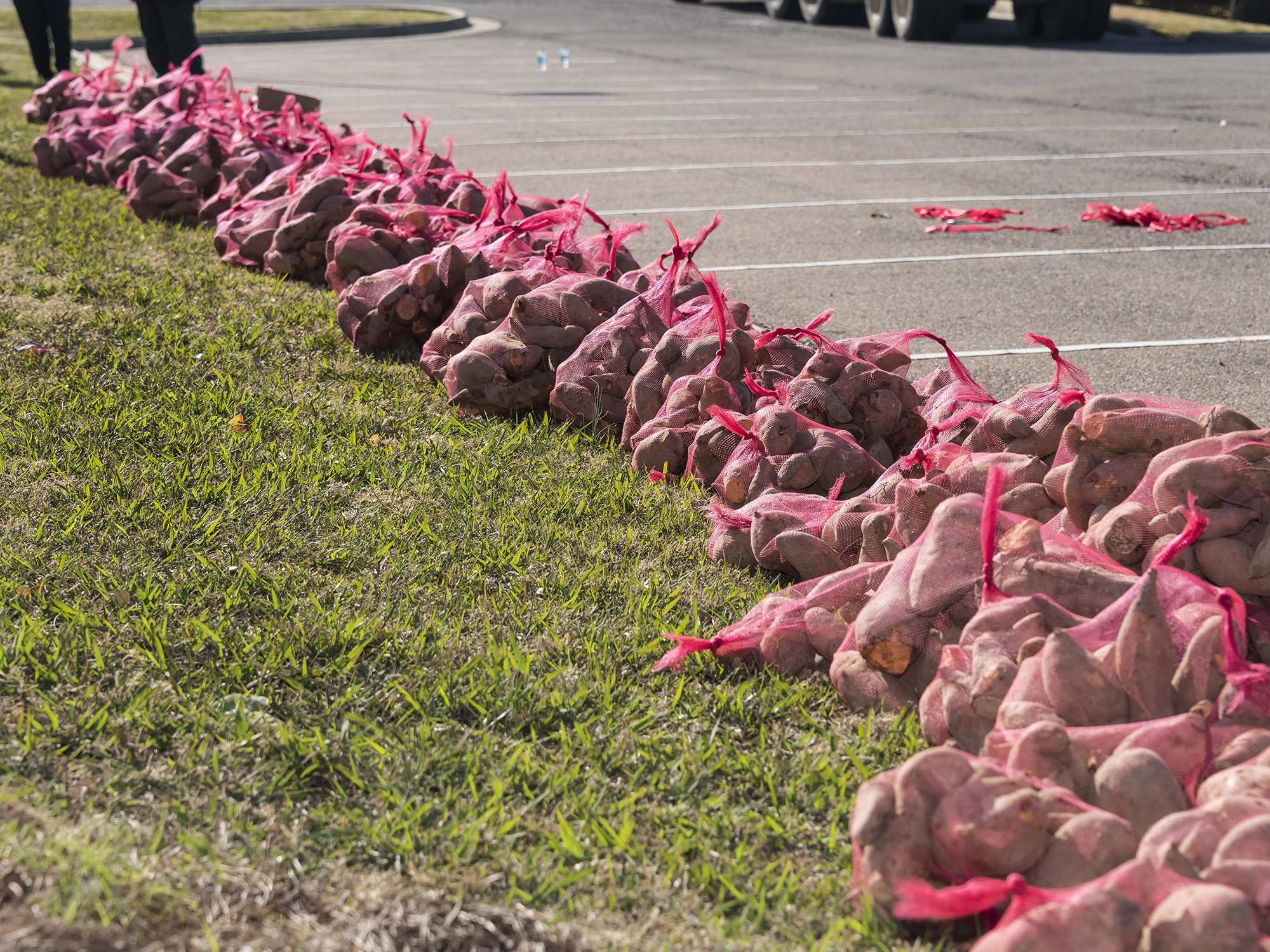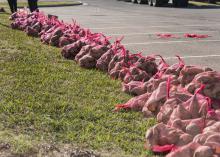Information Possibly Outdated
The information presented on this page was originally released on June 28, 2016. It may not be outdated, but please search our site for more current information. If you plan to quote or reference this information in a publication, please check with the Extension specialist or author before proceeding.
State’s produce offers new value to gleaners
JACKSON, Miss. -- An organization ready to harvest and distribute quality food to the hungry always looks for new farms to glean and more hands to help with the work.
The Mississippi Gleaning Network exists to link agricultural endeavors with organizations that distribute food to the needy. It is operated under the Society of St. Andrew, a Christian nonprofit, nationwide organization that supplies the volunteer labor.
Gleaning is an ancient practice in which workers are allowed into a harvested field to gather for themselves the food that is left over.
“We glean the fields to prevent waste and feed America’s hungry,” said Andy Lemmon, program coordinator for the Mississippi Gleaning Network. “Last year in Mississippi we salvaged 1.9 million pounds of food and gave it to charitable organizations that donate it to the hungry.”
A typical example of gleaning came in early June when a grower opened a blackberry field in Tupelo for gleaners.
“We had a producer invite us in to glean his fields, and our volunteers picked 170 pounds of blackberries in one day,” he said. “The pickers came from Columbus and West Point and took some back to organizations in their area that could distribute the berries that day. I took several pounds back to Jackson and gave them to men’s homes and nursing homes that are feeding between 20 and 50 people a day.”
The Mississippi State University Extension Service has helped link Mississippi farmers with gleaners.
Rick Snyder, Extension vegetable specialist at the MSU Truck Crops Branch Experiment Station in Crystal Springs, said the whole concept of gleaning is mutually beneficial to the producer and Mississippians who have limited access to fresh produce because of geography or income.
“Mississippi has a pretty serious problem with food deserts in parts of the state that don’t have access to fresh, healthy produce. The gleaning network can get fresh farm products into the hands and onto the tables of people who really need it,” Snyder said.
“On the farmers’ side, there’s always waste in agriculture because you can’t harvest everything in your field. There’s always something left over,” he said. “If the farmer allows in gleaners, they will harvest much of the remaining crop and put it to really good use for the people of Mississippi.”
In addition to preventing waste and making fresh food available for free to those who need it, there’s a tax benefit available to producers who allow their fields to be gleaned.
“Gleaning results in a charitable donation based on the pounds harvested from their field, and that can help producers reduce their tax bills,” Snyder said.
MSU has been involved in several gleaning opportunities through the years. Service D.A.W.G.S. participants have bagged up gleaned sweet potatoes, preparing them for distribution. The Truck Crops Experiment Station has in the past opened the gates of its 3-acre garden to gleaners to harvest produce that remained.
Lemmon said gleaning efforts require a source of food that can be harvested for free, volunteers able to respond very quickly when a field can be harvested, a staging area for delivery and organizations in place that can distribute the food quickly.
“In Mississippi, we typically have specialty crops available for gleaning, which means any kind of produce,” he said. “Food available for gleaning includes perfectly edible items that are just not marketable because of cosmetic issues.
“A zucchini may be too big to sell but perfectly good to eat. We had a whole truckload of bananas once that had been riding too long and had to be unloaded and distributed quickly,” Lemmon said. “We keep food that is perfectly edible from going to waste.”
Gleaning and food distribution requires more than just volunteers picking produce in the field. Lemmon said one church group cut and tied hundreds of red mesh produce bags so he could have them on hand when needed.
“We will find something for you to do if you want to get involved,” he said. “Just contact us now so we know who you are and can link the job with the people who can do it.”
Anyone producing crops who is interested in donating the extra to gleaners can contact Lemmon at the Mississippi Gleaning Network at 769-233-0887 or http://www.endhunger.org, or their local Extension agent.




